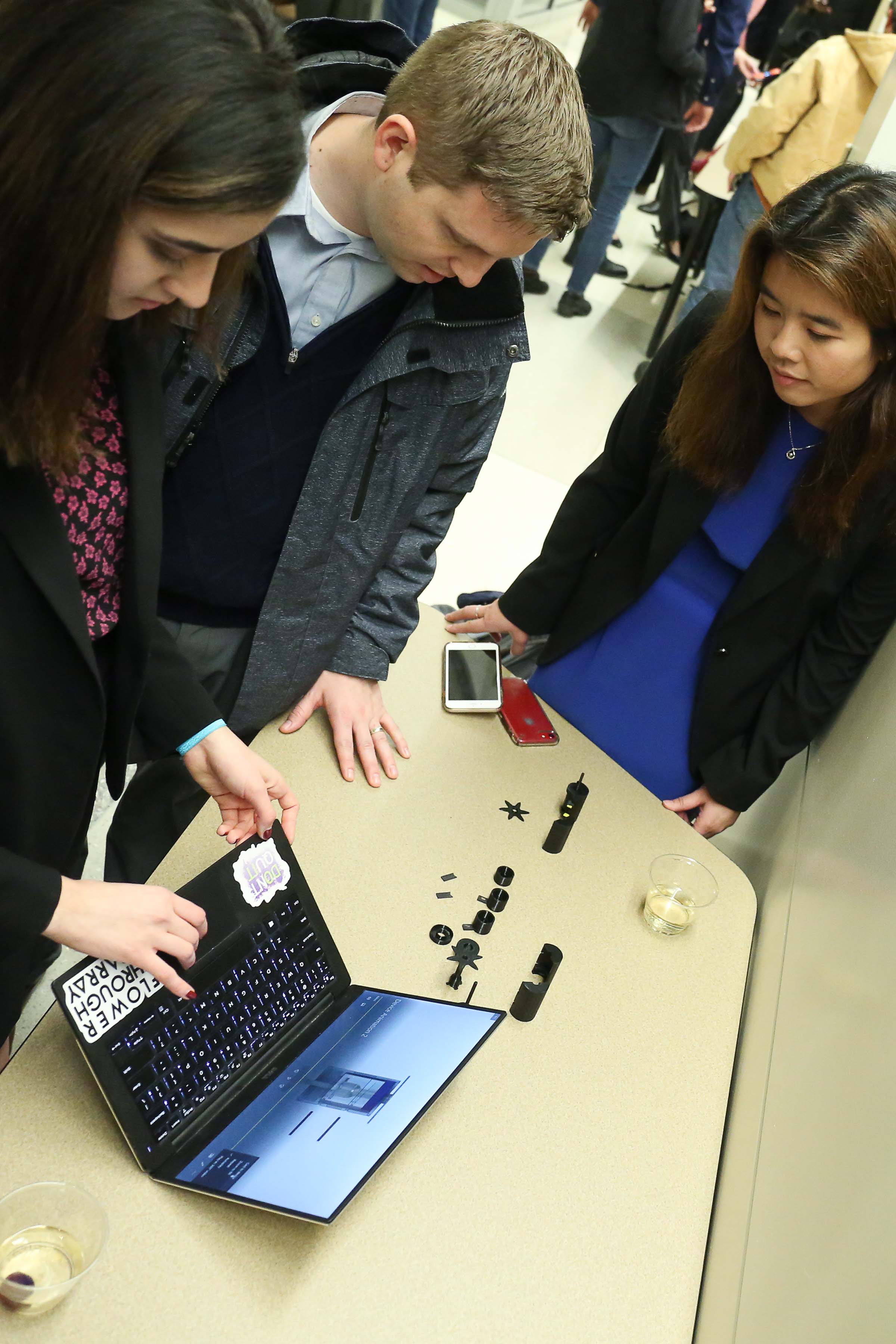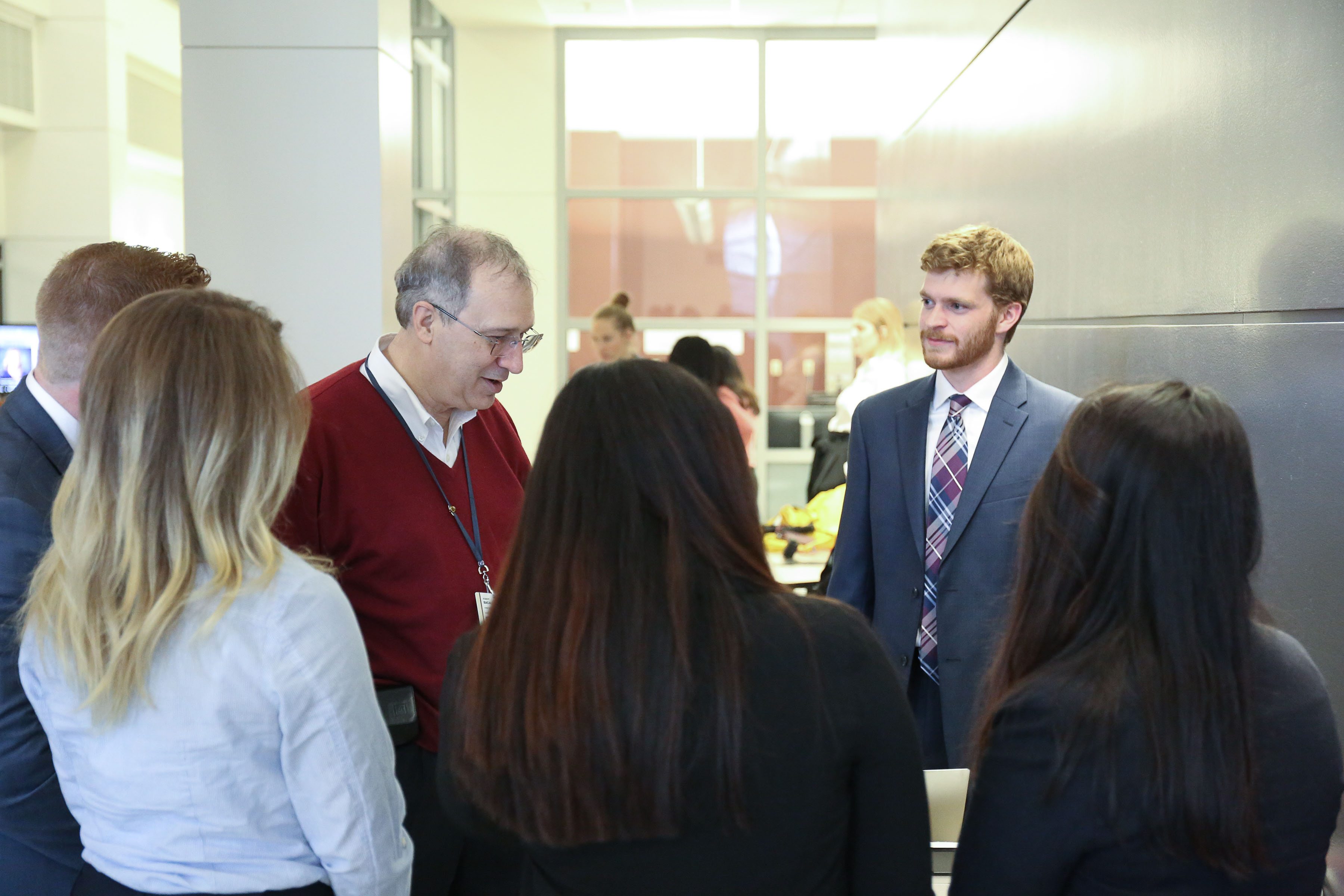Clinical mentors help biomedical engineering students bridge two worlds for senior design projects

Students whom he and other IU School of Medicine clinicians have mentored in Purdue’s Weldon School of Biomedical Engineering senior design team projects couldn’t agree more.
Merrell, an assistant professor of clinical pediatrics at IU School of Medicine, practicing physician, and director of the Clinical Care Innovation Accelerator at the Indiana CTSI, says his mentoring experience has confirmed that physicians and future biomedical engineers strengthen each other. A former Purdue Weldon School of Biomedical Engineering graduate student himself, Merrell believes members of the two professions bring complementary perspectives that enhance the invention of groundbreaking, translatable medical devices.
“For me, it’s a win any way you slice it,” says Merrell, who in Fall 2018 helped a Purdue team create a solution that increases the stability and effectiveness of self-injection devices for patients with autoimmune diseases, such as rheumatoid arthritis and type 1 diabetes.
“Clinicians are best positioned to identify biomedical problems that matter because they’re on the front lines of healthcare, but most of them have little or no training in deriving and implementing solutions to those problems,” Merrell notes. “On the other hand, engineers are excellent at problem-solving, but they don’t always know what problems are most deserving of their time.”

Therefore, Merrell adds: “I only see benefits when IU School of Medicine clinicians and Purdue innovators work together. Each party helps the other, and society stands to gain the most.”
Xiaohong Tan, a member of the team Merrell assisted, also perceives synergies and praises his contributions. “Our big challenge was to figure out the population target and how to design a competitive product to address a market need,” she says. “Dr. Merrell helped us understand patient requirements and how to meet them. We shared ideas, and he provided valuable feedback, enabling us to create a better prototype.”
Tan, who received her bachelor’s degree in December and plans to attend graduate school, says: “The senior design project with Dr. Merrell’s mentoring gave me a taste of what it’s like to work in the industry – and helped me confirm my career direction. I learned that a crucial ingredient of success in biomedical R&D is collaborating with physicians to develop solutions that patients will use to improve their lives.”
Fellow senior Elly Lambert, who served on another design team last fall, also touts the IU School of Medicine-Purdue College of Engineering Partnership. “I had a really great experience partnering with a clinician,” she says, referring to Dr. Robert Bacallao, an IU School of Medicine professor of medicine; a nephrologist; and founder of Rene Medical, an advanced renal therapeutics company.
“I grew professionally from the networking, and I gained insight into the challenges doctors face,” Lambert says. “Dr. Bacallao was extremely willing to help us with anything we needed.”
Bacallao identified, described and aided students in filling a critical gap he knew well: the lack of an at-home blood potassium monitoring device, particularly affecting patients with end stage renal disease and congestive heart failure. The resulting innovation shows promise in enabling accurate and more frequent potassium measurement, as well as better trend detection, reducing the likelihood of emergency hospitalization and dialysis.
Says Bacallao, who holds a biomedical engineering degree, “I derive great satisfaction from helping students, as a clinician who understands how technology could change how physicians, nurses, therapists and ancillary health care workers do their work, but who also is conversant in engineering approaches.”
Encouraged by what he has witnessed, Bacallao is looking ahead. “Even stronger connections between Purdue and IU School of Medicine are essential for both engineering science and medical science, and to build a robust economy in Indiana,” he says. “I foresee a deeper partnership producing novel solutions that are yet to be realized.”
